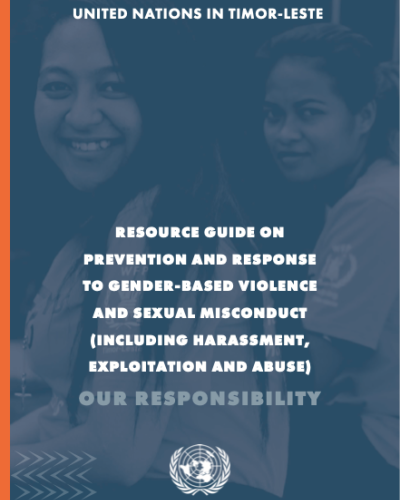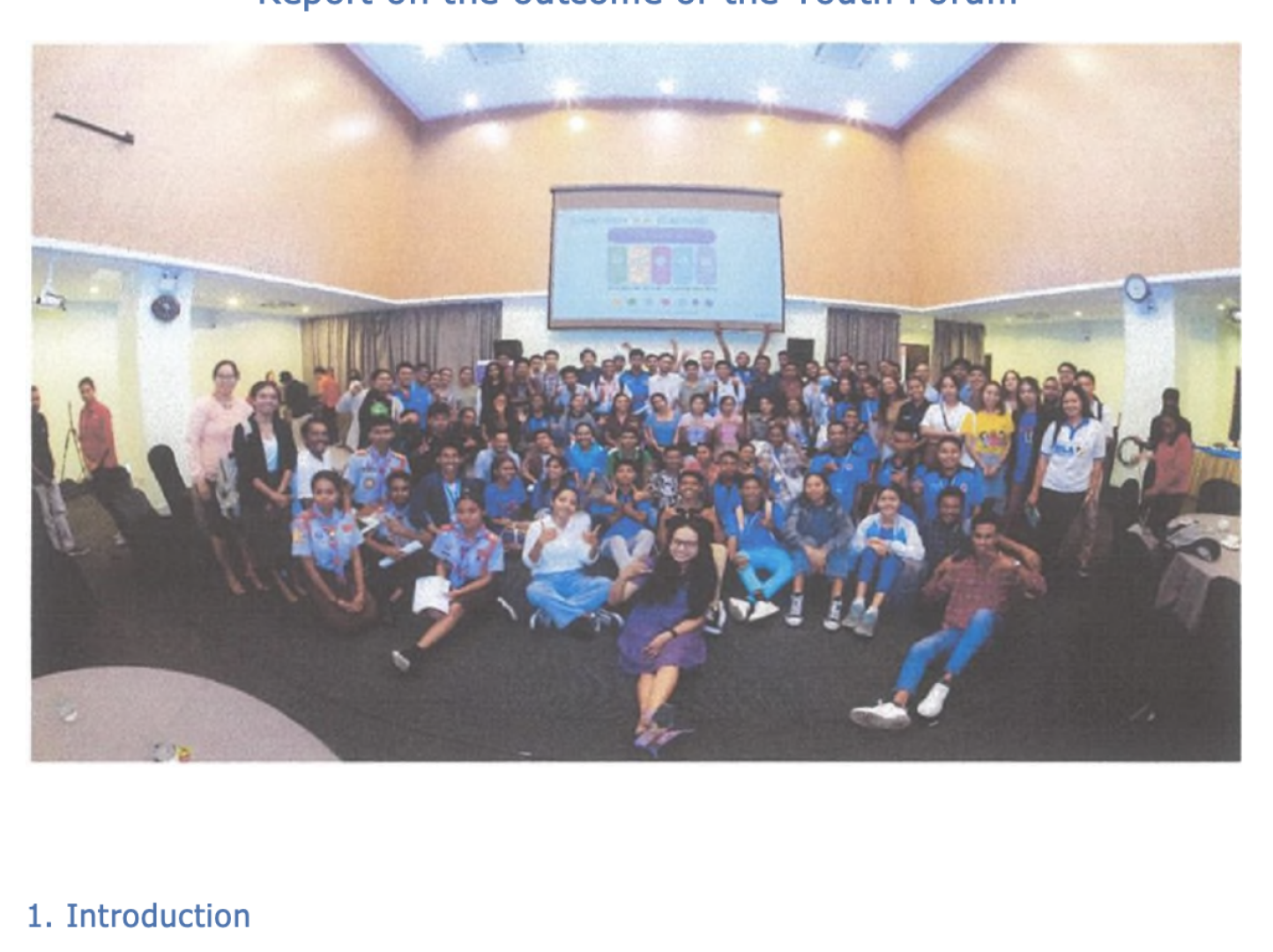Resource Guide on Prevention and Response to Gender-Based Violence and Sexual Misconduct (Including Harassment, Exploitation and Abuse)

The UN Country Team in Timor-Leste is committed to upholding the highest standards in our contributions to equitable and sustainable development in Timor-Leste. This begins with affirming our promise to working towards a society where our personnel and our dependents, our partners and the wider population of Timor-Leste can enjoy the fundamental right of all people to live free of gender-based violence. Despite decades of action and efforts by women’s organizations, civil society advocates and increasing attention by governments, the United Nations, development partners and the private sector, gender-based violence remains one of the most wide-spread human rights violations and barriers to achieving the 2030 Sustainable Development Agenda.
In Timor-Leste and across the world, women and girls are the largest group within the population affected by gender-based violence due to the unequal power relations and discrimination they face within their homes, in their communities and in the wider society. Boys, persons with disabilities, and LGBTI persons are also at risk of violence, and across groups, a variety of factors affect a person’s risk of violence and their ability to overcome it. Gender-based violence cuts across all borders and sectors of society. The UN is not immune to the threat of this violence, and we have an obligation to prevent and be ready to respond when any form of gender-based violence occurs within our institutions.
This Resource Guide is part of a UNCT Commitment made in December 2017 to take joint action in addressing gender-based violence in Timor-Leste, through technical coordination and leadership of the UN Gender Theme Group. The Guide aims to support UN personnel at all levels in Timor-Leste to understand and act on the significant problem of gender-based violence, with specific attention to domestic violence or intimate partner violence, sexual exploitation and abuse and harassment. It provides an overview of the different forms of violence, information on our obligations as UN personnel and offers guidance on support services available and actions we can take when confronted with violence in our workplace or our homes. The Guide provides practical information on contact persons and reporting mechanisms in Timor-Leste, and complements other UN resources, such as the Gender-Based Security Incidents Aide Memoire and agency-specific materials.





